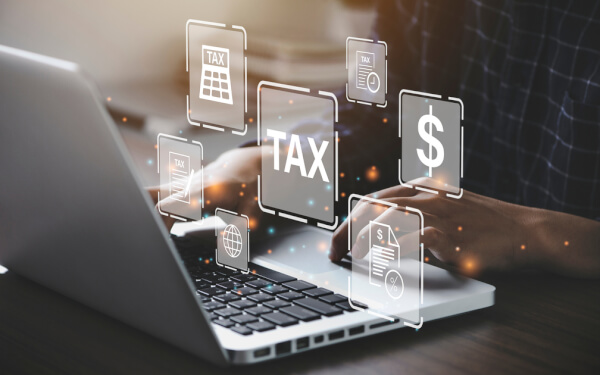GST Exemption List Singapore: Complete Business Guide for 2025
Complete guide to Singapore's GST exemption list. Learn which supplies are exempt, out-of-scope, or zero-rated and how it affects business compliance.

Whether you’re an entrepreneur or an aspiring business owner looking to start a small business, registering your business is the first step to legitimising your business in Singapore.
A Sole Proprietorship is the simplest business structure and one of the most popular options that solopreneurs and small businesses tend to consider. This guide takes you through the process of Sole Proprietorship registration in Singapore, helping you to get started fast while covering all your bases.
We'll also mention Wise Business as an alternative business account that could help you save on international payments and conversion fees, which could help your small business cut out unnecessary costs.
| Table of contents |
|---|
A Sole Proprietorship is a business that is owned and controlled by an individual or a single Singapore-registered company.¹
Sole proprietorships are owned by a single entity and are not able to take on partners or shareholders. This means that the single owner will have full control over the company’s decisions, operations, and liabilities.
If you’re registering as a sole proprietor in Singapore, you should consider the following advantages and disadvantages.
Sole proprietor registration in Singapore is a simple process. We'll walk you through it in this section.
Once your sole proprietor business has been registered, you can start running your business and working towards your dream.
But it could turn into a nightmare quickly if your business is not compliant with the laws and regulations set by the related government agencies. Hence, you should ensure that your business conforms to the local laws.
| ➡️ Not sure which corporate bank account is suitable for you? Save time on research by reading our article on the best bank account for Singapore-based Sole Proprietorships. |
|---|
| ➡️Further reading: Check out our guide on how to register GST for companies in Singapore. |
|---|
| ➡️ To learn more about taxes and how to calculate taxable income, read our guide on Sole Proprietor Tax in Singapore. |
|---|
| ➡️ Read our guide on Import and Export Licenses in Singapore and ensure that you are aware of the regulations and processes required. |
|---|
A valid sole proprietor registration in Singapore does not last forever. You will need to renew your business registration regularly.
You will receive reminders of upcoming expiry, and you must renew your business registration before the expiry date if you wish to continue running the business. A late penalty may be imposed for late renewals.
In order to renew your business registration, you must ensure that your Medisave contributions are up-to-date. You will need to pay SGD 30 for a one-year renewal or SGD 90 for a three-year renewal. Payment can be done via credit card or online payment methods.⁷
Should you wish to close your sole proprietorship business, you will be required to notify ACRA by filing a Cessation or Dissolution of business entity via the BizFile platform.⁷
If your company is GST registered, you will be required to cancel your GST registration with IRAS.⁸
Sole Proprietorship is not limited to Singapore citizens. If you’re a foreigner, you can register as a sole proprietor, as long as you can fulfil these additional requirements.
Sole proprietor registrations in Singapore are open to foreigners as well. However, foreign citizens must appoint a local authorised representative (any Singaporean citizen, PR or Employment Pass / EntrePass holder who is currently residing in Singapore).
Foreigners who are residing in Singapore and wish to set up a sole proprietorship must seek approval from the Ministry of Manpower.
SingPass will be required to submit applications via BizFile and to process CPF payments. Foreigners who do not have a SingPass account must engage a corporate service provider to help submit their applications and submissions.
| ➡️ Further reading: How to start a business in Singapore as a foreigner: Ultimate guide ⬅️ |
|---|
Most applications should be done within minutes after you pay the registration fee to ACRA. However, if your application requires review and approval from other government agencies, your registration may take 14 to 60 days to process.
It costs SGD 115 to set up a sole proprietorship in Singapore. The cost includes:
Yes, all registered business entities in Singapore are given a Unique Entity Number (UEN). It is a 9 or 10-digit identification number that serves as a companion’s registration number. You will receive a UEN upon the successful registration of your sole proprietorship.
A Sole Proprietorship is the simplest business structure in Singapore. As a new business owner, you can carry out your own Sole Proprietor registration easily, within minutes.
However, registering your Sole Proprietorship in Singapore is just the first step to fulfilling your dreams. As a business owner, you will need to find clients, hire staff to help you, improve your operations, optimise your costs and margins, and so much more.
And the key factor that makes or breaks a new business isn’t about the business structure. It's about how you manage your costs.
Choosing the right partners can help you lower costs and improve your margins, allowing your business to grow faster.


| 💡Need to pay or get paid in foreign currencies? Wise Business could be a better alternative business account as you can hold, send, receive and exchange 40+ currencies all in one place. You’ll always get the mid-market rate with low, transparent fees. Even better, you can connect Wise Business cards to your account to control team spending in real time and reduce admin. |
|---|
➡️Get started with Wise Business today
Sources
Sources checked on 24th July 2025
*Please see terms of use and product availability for your region or visit Wise fees and pricing for the most up to date pricing and fee information.
This publication is provided for general information purposes and does not constitute legal, tax or other professional advice from Wise Payments Limited or its subsidiaries and its affiliates, and it is not intended as a substitute for obtaining advice from a financial advisor or any other professional.
We make no representations, warranties or guarantees, whether expressed or implied, that the content in the publication is accurate, complete or up to date.

Complete guide to Singapore's GST exemption list. Learn which supplies are exempt, out-of-scope, or zero-rated and how it affects business compliance.

A full review of the Sleek business account for Singapore companies including its features, fees, and benefits.

Discover what Zero-Rated GST is, how 0% GST can help your Singapore business save on taxes, how to qualify for it and more.

Compare the best startup bank and non-bank solutions in Singapore. Find the right banking solution for your growing business with our complete guide.

Discover the most profitable small business ideas in Singapore for 2025. From e-commerce to consulting, find the perfect market for your new business today.

Learn what Corppass Singapore is, how roles work, and the Singpass/SFA login. Step-by-step setup and key services for IRAS, ACRA, MOM, CPF.